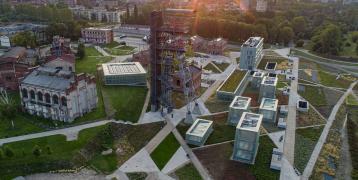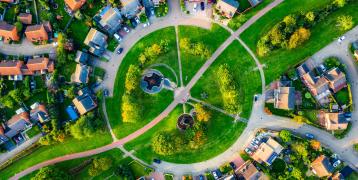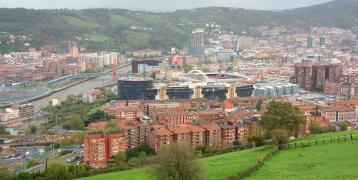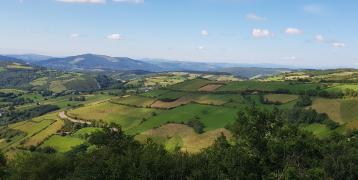Enhancing the benefits of urban-rural linkages: key learnings

The Policy Learning Platform held an online workshop on November 14 from 14:00 to 17:00 CET, focusing on the essential connections between urban and rural areas.
As urban and rural regions often operate under different administrative and policy frameworks, this workshop aims to explore strategies and governance principles that foster urban-rural partnerships for integrated planning.
We have discuss the benefits of enhanced urban-rural cooperation, including sustainable land use, improved public services, and effective natural resource management.
During this online event, we heard good practices from different Interreg Europe projects.
Featured projects
Workshop recording
Explore the recording of the online workshop below.
Workshop agenda
This workshop has been designed and moderated by Magda Michaliková and Astrid Severin, Thematic Experts for a Europe closer to citizens.
00:00:59 Introduction by Magda Michaliková and Astrid Severin, Thematic Experts for a Europe closer to citizens.
00:11:53 Policy brief presentation by Arnault Morisson, Thematic Expert for a Europe closer to citizens.
00:24:44 Presentation on Capital Region Berlin-Brandenburg: Formal and informal spatial planning approaches addressing a large functional urban area by Dr Jürgen Neumüller from the Joint Spatial Planning Department Berlin- Brandenburg (Germany)
00:41:24 Q&A: How long does it take to finalise the transport plan? And how is it financed?
00:42:38 Q&A: Is it part of your plan to make it a two-way exchange?
00:44:18 Q&A: Did you implement any specific community engagement strategies to manage resistance to change, especially regarding major changes associated with this plan's projects? How did these strategies help encourage acceptance and support within the community?
00:46:34 Presentation on the Development Strategy of the Silesian Voivodeship and the urban-rural link by Dariusz Stankiweicz from the Marshal’s Office of the Silesian Voivodeship, Poland. (PICOBELLO, Interreg Europe project)
00:56:44 Presentation on Rural-urban linkages in the Regional Spatial and Economic Strategy of the Southern Region of Ireland by Eoin O’Connor from the Southern Regional Assembly, Ireland. (PROXIMITIES, Interreg Europe project)
01:10:20 Presentation on Sustainable rural-urban development and eco-systems services by Marcin Spyra from the Martin Luther University Halle-Wittenberg, Sustainable landscape development, Germany. (RENATUR, Interreg Europe project)
01:24:33 Q&A: Do you also identify a lack of capacity especially of local institutions?
01:28:25 Presentation on Supporting young farmers to get started by Daniel Alexandri from the National Meteorological Administration, Romania. (Down to Earth, Interreg Europe project)
01:38:38 Q&A: How many of these people have moved from the city to rural areas? What are the state of play after 6 years?
01:41:52 Presentation on Tartu smart bike share by Sven Tobreluts from the Association of Municipalities of Tartu County, Estonia. (UrbanCOOP, Interreg Europe project)
01:49:41 Q&A: Are you planning to further develop the project?
01:51:52 Presentation on the 2030 plan for the future of the Horta Sud region by Jorge Boronat Vazquéz from Horta Sud Region, Spain. (UrbanCOOP, Interreg Europe project)
02:00:22 Q&A: Is the monitoring still going on?
02:02:12 Panel discussion
Key learnings
Define functional areas supporting the interconnections of urban-rural areas to overcome the policy divide of administrative areas/governance fragmentation e.g. functional areas defined on social, economic, geographical, heritage and/or landscape criteria
Consider joint governance structures and joint spatial planning fostering urban-rural linkages such as mobility, blue-green infrastructure, education and knowledge creation
Combine top-down planning e.g. regional spatial, economic or mobility strategy with bottom-up initiatives e.g. citizen participation and neighbourhood fora
Highlight a shared regional culture, identity/belonging and landscape and develop common branding
Raise awareness of eco-systems services and establish a better understanding of drivers for conflicts e.g. on land use, between old/new inhabitants
Use a good mix of policy instruments, support tools and methodologies
Involve all related stakeholders including planners, citizens, private actors, farmers, artists, and academia and make use of their creativity
Facilitate interaction, knowledge & innovation transfer and make extensive use of design & art





